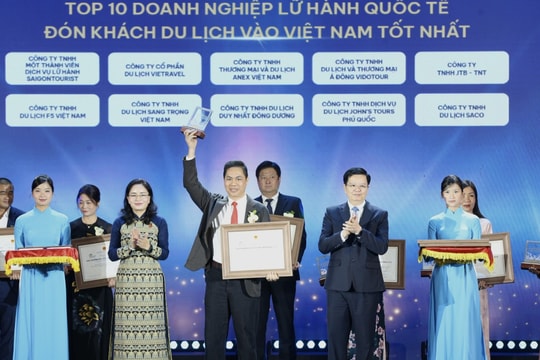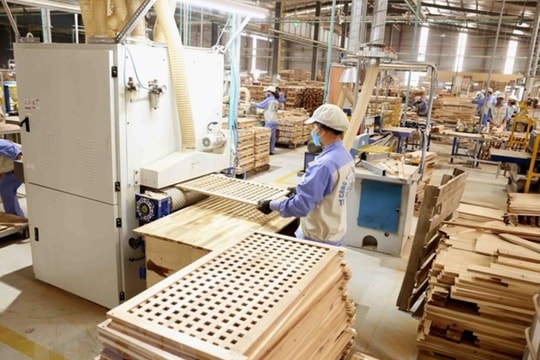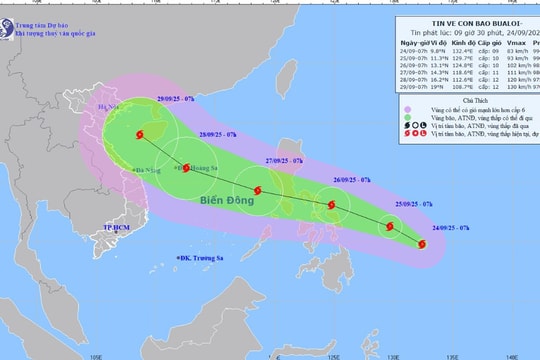The richer the Vietnamese, the more they like instant noodles.
Vietnam consumes nearly 5 billion instant noodle packages a year, ranking fourth in the world, and it is noteworthy that as people's income increases, so does the demand for instant noodles.
According to Nikkei Asian Review, Vietnam is one of the world's leading instant noodle consumption markets and Japanese instant noodle companies are competing for market share in this Southeast Asian country.
Vietnam is now the fourth largest consumer of instant noodles in the world, behind China, Indonesia and Japan. The growing economy is changing many lifestyles here and instant noodle companies see this as an opportunity for growth.
According to a report by the World Instant Noodles Association based in Osaka, Japan, Vietnam consumed 4.8 billion noodle packages in 2015. With a population of about 90 million people, this consumption level means that each Vietnamese person eats more than 50 noodle packages a year on average, equivalent to 5% of the world's instant noodle consumption demand.
 |
Noodle companies are targeting middle-income customers in Vietnam. |
Japanese companies used to focus on cheap, plastic-wrapped noodles. But they are now developing more premium products that come in plastic cups and are aimed at wealthier consumers.
Acecook Vietnam Joint Venture Company is a subsidiary of Acebook Japan, headquartered in Osaka province and is the company that occupies more than 50% of the instant noodle market share in Vietnam.
In July, the company launched Handy Hao Hao, a cup-shaped instant noodle with a variety of meat and vegetables. The product sells for 8,000 VND, twice as much as other noodles in plastic bags, which usually sell for just 3,500 VND.
Acecook started selling the new cup noodles in Ho Chi Minh City first and then started distributing to Hanoi and other major cities. The company has also invested in a new factory in an industrial park 40 minutes away from the center of Ho Chi Minh City. The factory has three production lines, one of which is focused on producing the new cup noodles.
This line can produce 180 million cups of Handy Hao Hao noodles and other cup noodles a year. Acecook Vietnam is also planning to build another factory in northern Vietnam next year. Currently, the company's main product is Hao Hao instant noodles, which were first launched in 2000.
The main reason Acecook switched from instant noodles to cup noodles is because the middle class in Vietnam is growing rapidly, mainly in urban areas, and has its own needs for food.
Instant noodle demand in Vietnam peaked at 5.2 billion servings in 2013, but the number declined two years later.
Vietnam’s economy has been growing at 5 to 7 percent a year, with per capita income increasing fivefold over the past 15 years. This has led to a boom in fast food restaurants and demand for cup noodles, which are easier to prepare than other instant noodles, Acecook said.
"Cup noodles are selling better than instant noodles in some stores in Ho Chi Minh City. This has never happened before," said Junichi Kajiwara, General Director of Acecook Vietnam, adding that the company plans to increase cup noodle production among its noodle brands from 2% to 5% by the end of 2017.
Many of Acecook’s competitors have also launched cup noodle products with Vietnamese flavors and ingredients. Also in July, Nissin Food Holdings launched Cup Noodles in Vietnam. This product has been famous in the world before.
Nissin cup noodles are priced higher than Acecook, at VND12,000 to VND15,000. A Nissin representative said the company's strategy is to create demand for premium instant noodle products for middle-class consumers. Several Korean and Vietnamese companies have also caught up with the trend of consumers using cup noodles and launched similar products.
"Vietnam's population is still growing rapidly and people's income is improving, even in rural areas. Demand for fast-moving consumer goods is still very large," said Mr. Atsasuke Kawada, Chief Representative of the Japan External Trade Organization (JETRO) in Hanoi.
As a signatory to the Trans-Pacific Partnership (TPP) trade agreement, Vietnam will create opportunities for Japanese companies to create a basis to export instant noodles to larger markets.
Currently, Acecook Vietnam exports noodles and other products to North America and Europe. The company also plans to increase the proportion of export revenue from 8% to 20% within the next three years.
According to VNE








